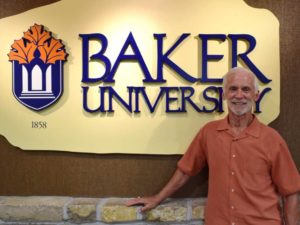My friend Kevin was diagnosed with ALS. This brutal disease strikes some 5.000 every year, has no known cause or cure, and culminates in death within 5-10 years. Kevin was a healthy, vibrant go-getter energized by activity and always the first to offer up, “I got of this.” Sitting around and doing nothing was the only thing he couldn’t tolerate. After researching his disease, he knew what awaited if he did nothing…. total loss of muscle movement and the ability to care for himself. He would retain his full mental capacity but be unable to communicate.
Kevin described his future to me as “hell on earth” and planned to rewrite the script for his final exit. He was unwilling to be helpless and end his life choking on his own saliva, as do too many ALS patients. Instead, he would continue to live an active life and relocate to a state with legalized Medical Aid in Dying (MAID). When anyone asked why, he would answer, “I absolutely don’t want to die, but what waits for me is not living.” He intended to meet the state’s residency requirement of 2 years while securing medical care to help him end life just as he had lived it… proudly and independently.
But his plan was just as doomed as he was because legal assistance in dying is not really what the name suggests. His symptoms progressed, and his final five years were spent being turned by others while tubes forced oxygen and liquid nutrition through his body to be collected in diapers. Unable to communicate, his pleading eyes begged for help. He wanted out of his horror chamber, but assisting him to end his life (euthanasia) would be legally classified as a homicide.
Why doesn’t legalized MAID work for those who rationally choose to end life earlier rather than accept a prolonged experience devoid of dignity? Currently, ten states and Washington D. C. allow ending life with medical assistance. But all is not as it might appear as the laws are written. Two physicians must agree to assist in the process medically. But medical doctors take the Hippocratic Oath to do no harm, and many fear the church’s and the public’s wrath.
The ultimate exclusion is the mandate that death must be medically “expected” within six months which is impossible for any condition with gradual deterioration. While ALS is one, many other terminal diagnoses lead to a long-term and total loss of independence. The one that strikes most often is Alzheimer’s disease. According to the CDC, the annual number of new cases is 500,000. More than 6 million are living and suffering deterioration projected to be 13 million by 2050. Is there no way for terminal patients to choose a peaceful, dignified end of life rather than a prolonged incapacitation?
We need only look northward for an alternative. Not only does Canada offer governmental health care for residents, but it also allows them the right to decline. After realizing in 2015 that existing medical assistance in dying provisions (almost identical to ours) was not meeting the desires of many, regulations and procedural safeguards were revised. Current laws allow any resident adult (18+) medically diagnosed with an illness, disease, or disability (excluding mental illness) that cannot be reversed or relieved under conditions the person considers acceptable to choose an end to life rather than prolonged suffering. The condition need not be fatal or terminal to qualify for those who provide informed consent and pass an independent medical evaluation.
Anyone who could benefit from the death or extended care of the person choosing to end life early is excluded from the process. Physicians and nurse practitioners may administer medication that results in a peaceful death. Pharmacists, pharmacy technicians/assistants, medical care assistants, and family members can help anyone who has made a formal request and been granted approval. The prescribed medications to end life are under government control and typically the same ones taken in lower doses to manage pain, nausea, and sleeping.
There are annual reviews of provisions, practices, and data collection. While all Canadian citizens don’t like the law, participating is not a requirement. Preliminary information suggests Canada has effectively addressed the desires and needs of those who choose to end life on their own timeline. Annual reporting is required, along with public input, with the 2023 report projected for February 2023.
While there will never be universal support, there are fundamental points of agreement. All of us are terminal, and most hope for a peaceful short-term end-of-life rather than an extended experience devoid of dignity. Quality long-term care for terminal patients cannot meet existing or future needs. Concerns related to incapacity and loss of function typically exceed the fear of death itself. The premise that any type of life at all is better than death is invalid. Who wouldn’t welcome the opportunity to offer loving goodbyes to family and friends near the end of life? Isn’t it time to allow choices about when, where, and how life ends for anyone who has made those rational decisions?
______________________________________________________________________________________________________
 Dr. Don Clardy
Dr. Don Clardy
Dr. Don Clardy is a tenured professor at Baker University with 40+ years in higher education and numerous academic publications. More recently, his writing interests have turned toward current, controversial issues to spark independent thinking by those who choose to read his narrative work.



 Dr. Don Clardy
Dr. Don Clardy


